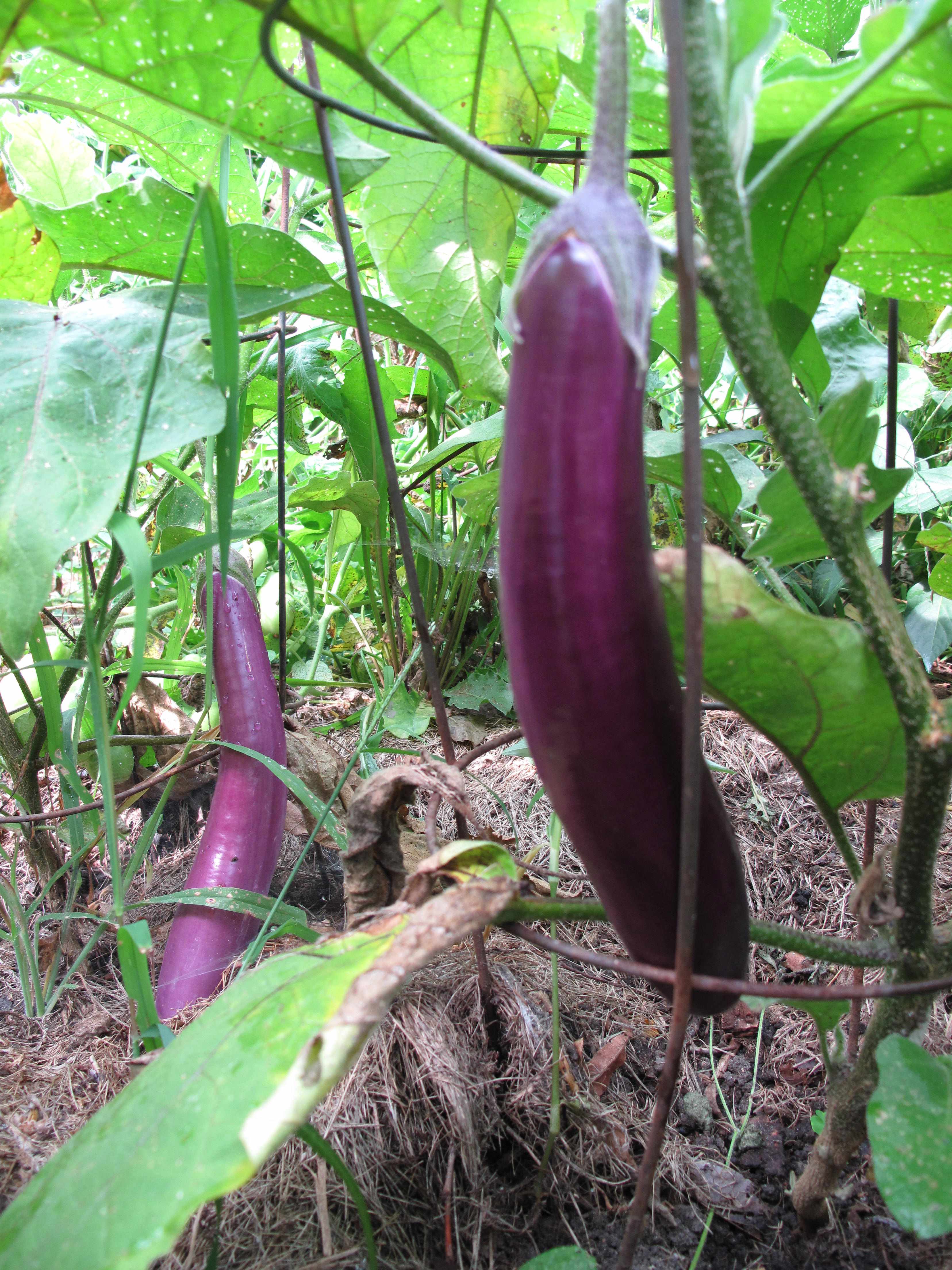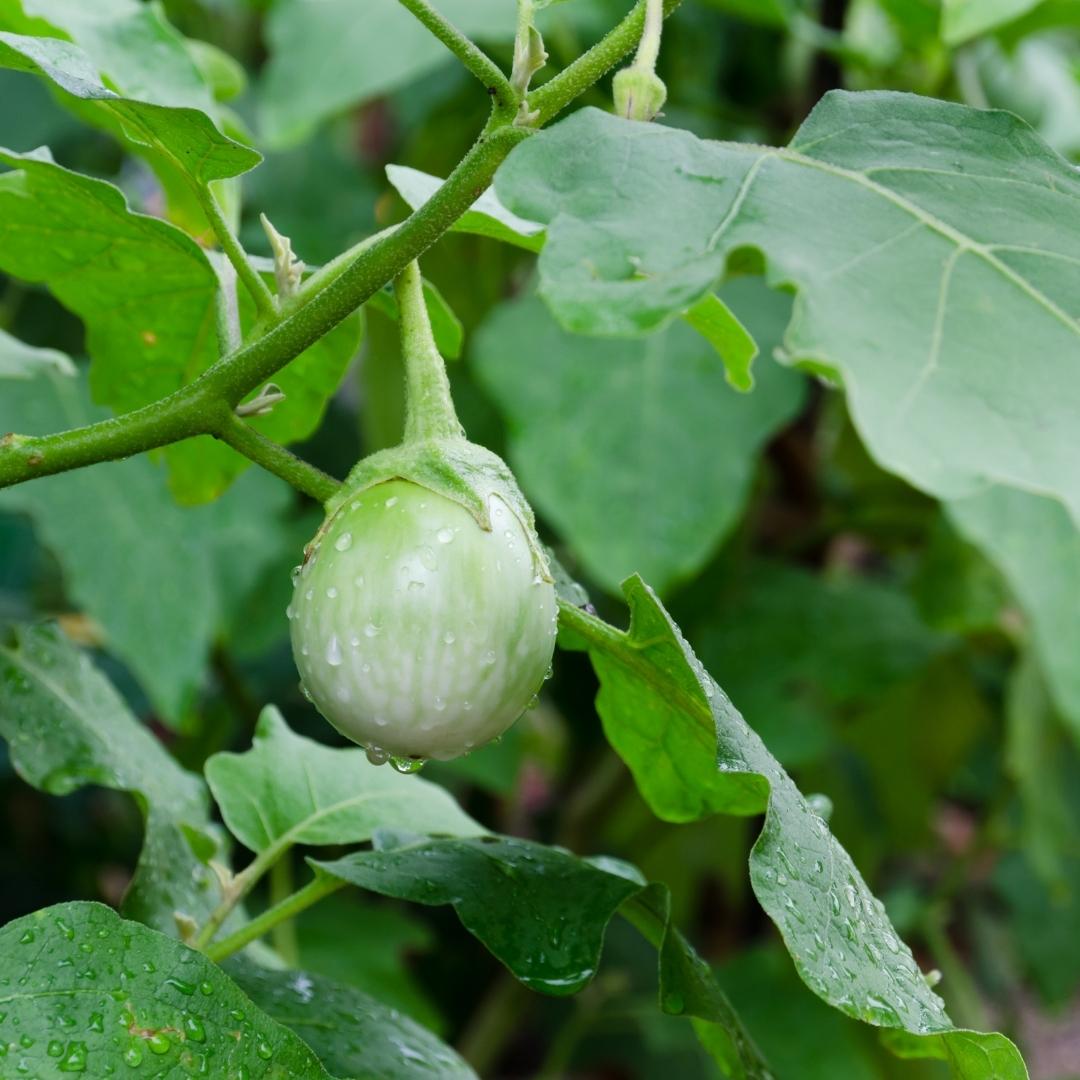
Exploring Vegetables Ichiban Eggplant Our Twenty Minute Kitchen
1 translation entry available: English: eggplant: Type: noun: Japanese: 茄子: Hiragana: なす: Pronunciation: nasu: Example: fry eggplant ナスを揚げる

Shin Korean Language Online Class
Eggplant in Japanese is written with the kanji 茄子. Consider trying the hiragana / katakana quiz or kanji quiz to continue your learning! To support this website and to enhance your knowledge of Japanese food words, consider picking up a copy of Savor the Flavor: A Japanese Food Vocabulary Guide.

Oyaji In the Japanese language, oyaji (親父, おやじ, オヤジ, oyaj… Flickr
Translation for 'eggplant' in the free English-Japanese dictionary and many other Japanese translations.

21 of the Best Japanese Eggplant Varieties Gardener’s Path
たけのこ. onion. tamanegi. たまねぎ. tomato. tomato. トマト. Basic Japanese language vocabulary for vegetables is easy enough to learn. There are several words for common vegetables used in Japanese cooking.

Japanese eggplant Eggplant, Edible, Vegetables
The word for eggplant in Japanese is 茄子 (nasu). Hear the pronunciation, see example sentences and other related words. Japanese. Beginner. Word Sets. 0%. Multiple Choice. 0%. Word Bingo. 0%. Hidden Image. Settings Membership Remove ads More Languages. The Japanese word for eggplant is

Learn Basic Japanese Podcast
Here's a list of translations. Japanese Translation. ナス. Nasu. More Japanese words for eggplant. 茄子 noun. Nasu aubergine. Find more words!

the japanese language is displayed in this screenshot
3. If you are making Yaki Nasu with a large eggplant, quarter the eggplant vertically first, then cut it into bite size pieces. 4. If serving your eggplants chilled, keep the grilled eggplants ready to serve in the fridge, without toppings. Add toppings at the time of serving. 5.

Sautéed Asian Eggplant
Eggplant is a versatile vegetable with a rich flavor and beautiful purple color. If you're a fan of Japanese cuisine or planning to visit Japan, it's useful to know how to say "eggplant" in Japanese. In this comprehensive guide, we'll cover both the formal and informal ways to say eggplant in Japanese, along with some tips, examples, and regional variations.

Organic Thai Eggplant
Japanese Translation of "EGGPLANT" | The official Collins English-Japanese Dictionary online. Over 100,000 Japanese translations of English words and phrases.

Taiwanese Eggplant Ping Tung Le Noyau Le Noyau
The Etymology of Eggplant. John Gerard first described eggplants in his 16th-century Herball, or General Historie of Plants, as having "the bignesse of a Swans egge," and the name stuck, at least among English-speaking people. According to Ina Lipkowitz, PhD, the etymology of its northern European name reads like a who's who of early.

Los Angeles, California. Reading bulletins in Japanese language in
Language Drops is a fun, visual language learning app. Learn Japanese free today. Are you wondering how to say "Eggplant" in Japanese ? "Eggplant" is the equivalent to なす in Japanese, and I'm pretty sure you've heard it many times before already. It's also good to know, that セイヨウネギ means "Leek" in Japanese, as well as.

Various shapes, colors and types of eggplant in the produce aisle of a
Japanese Translation of "eggplant" | The official Collins English-Japanese Dictionary online. Over 100,000 Japanese translations of English words and phrases.

10 Types of Eggplant—and What to Do With Them MyRecipes
What's Japanese for eggplant? If you want to know how to say eggplant in Japanese, you will find the translation here. You can also listen to audio pronunciation to learn how to pronounce eggplant in Japanese and how to read it. We hope this will help you to understand Japanese better.

Chinese Eggplant With Garlic Sauce The Best Giangi's Kitchen
eggplant translate: ナス, ナス. Learn more in the Cambridge English-Japanese Dictionary.

Eggplant Matilda Fruit Barn
Put cooking oil in a pan heated over a medium flame and fry the eggplant. Once the eggplant is cooked through, add the grated daikon, ginger, and noodle soup and heat. Simmer briefly, and after cooking over a low heat for about 5 minutes, remove the pan. In addition to the above dishes, nasu is commonly enjoyed deep-fried as tempura, stir-fried.

Study Secret Japanese Language Centre
Gather all the ingredients. In a saucepan, combine the broth ingredients: ¾ cup dashi (Japanese soup stock), 3 Tbsp mirin, 3 Tbsp sake, 3 Tbsp soy sauce, and 1 heaping Tbsp sugar. Mix it all together. Bring it to a boil and turn off the heat. Keep it covered so the broth doesn't evaporate.